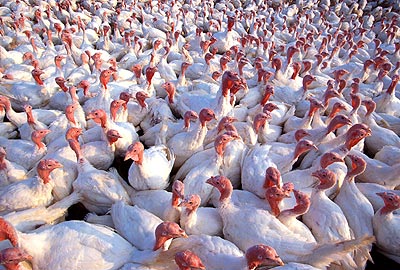USDA reports virulent strain of avian flu in Kansas poultry

CHICAGO - The US Department of Agriculture has identified the first infection of a virulent strain of avian flu in poultry in Kansas, confirming the virus has spread into a migratory bird route that runs through the center of the country.
The discovery of the H5N2 flu strain in a backyard chicken and duck flock in a county just outside Kansas City, Kan., is certain to lead to expanded restrictions on US poultry exports from top trading partners like Mexico and Canada.
The infection, confirmed on Friday by the US Department of Agriculture, was the first case in an established migratory bird route, known as the central flyway, that stretches roughly north-south from Montana to Texas.
Kansas officials quarantined the infected property in Leavenworth County, and birds there will be culled to prevent the spread of the disease. A quarantine zone will be established for miles around the site to limit the movement of poultry.
“We are dedicated to providing the necessary assistance and precautions to avoid any possible spreading of the disease,” said Bill Brown, Kansas' animal health commissioner,
The USDA will inform international trading partners and an international animal health organization of the infection. Major buyers of US poultry have already restricted imports from other states that have recently been infected with the same flu strain.
Last week, the USDA identified the first case in Arkansas, in the heart of the US poultry-producing region.
Molecular testing has shown the virus found in recent infections is nearly identical to viruses isolated in migratory ducks. But some wildlife experts are skeptical of suggestions that wild birds are responsible for spreading the flu in the Midwest.
The US Centers for Disease Control and Prevention considers the risk to people from highly pathogenic flu infections in wild birds and poultry to be low, according to the USDA statement. - Reuters







